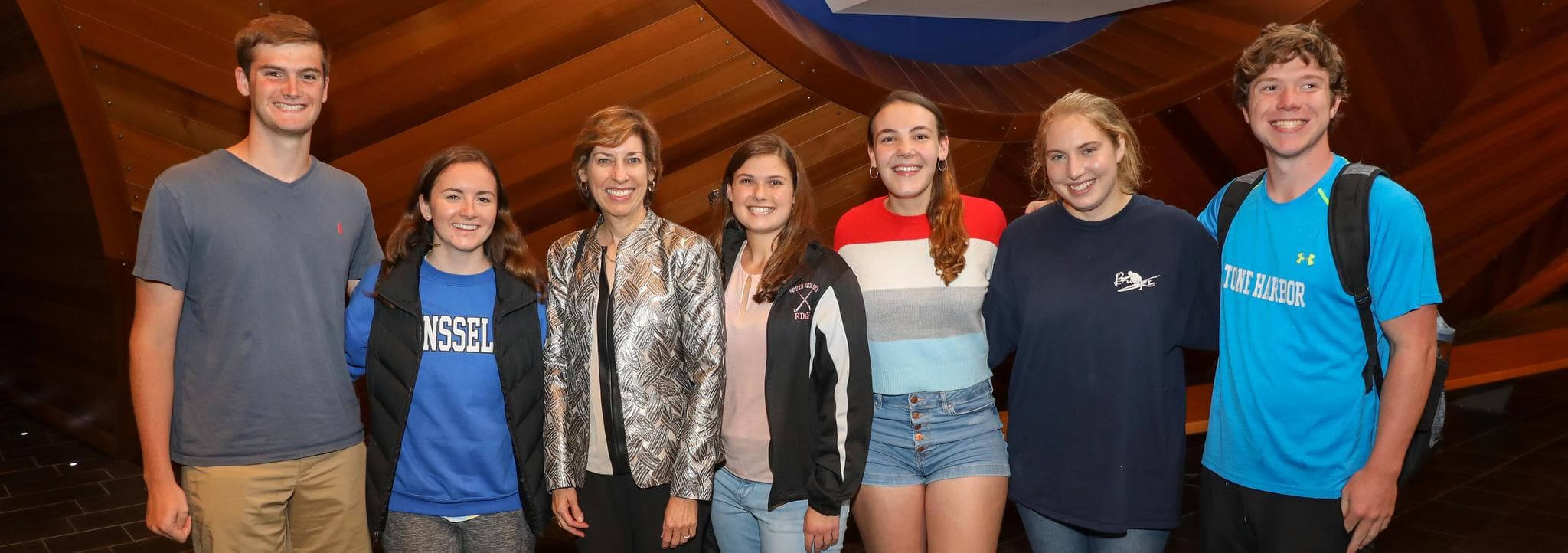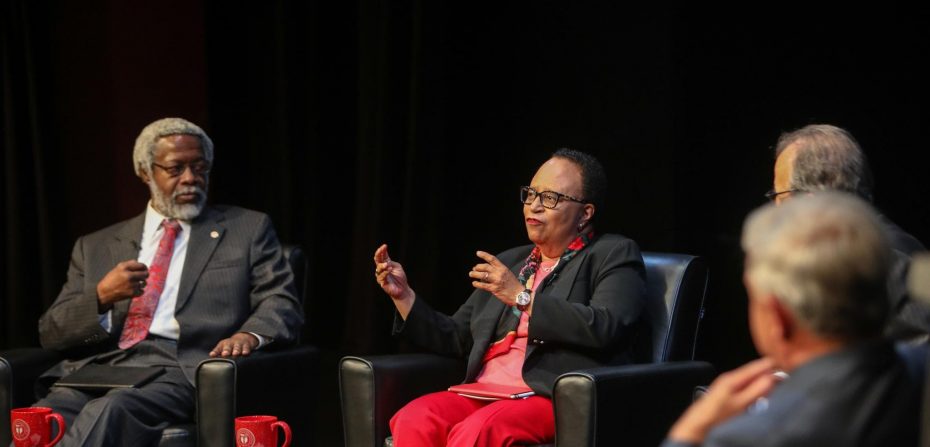WHAT DO YOU THINK THE BIGGEST CHALLENGE WILL BE TO GET THE YOUNG GENERATION INTERESTED IN SPACE?
Actually, I’ve found that the generation now in college is extremely interested in space! NASA continues to attract great talent from around the country, and a variety of aerospace companies including both established and newer ones are employers of choice. With NASA publicly engaging with a variety of companies not only for low earth orbit missions but also for the lunar gateway, many new activities are capturing the imagination of people studying STEM fields.
HOW HAS TRAINING FOR ASTRONAUTS CHANGED SINCE YOUR MISSIONS?
Training has evolved over the years, with the biggest changes coming because of moving from short-duration shuttle missions to 6-month expeditions on ISS, as well as preparation for even longer missions. In addition to learning all about operating spacecraft and specialized tasks like spacewalking and robotics, there is much more of an emphasis on behavioral health and self-care. So astronauts take part in activities like NEEMO (an underwater scientific habitat), outdoor leadership courses, and others that emphasize teamwork, flexibility, and overcoming obstacles. Astronauts also learn Russian in order to fly on the Soyuz vehicle, and many learn at least some Japanese, German or French since they train in countries with those languages. Future missions beyond ISS are planned to have international partners so learning languages will continue to be helpful even if not required.
WHAT METHODS ARE THEY CURRENTLY IMPLEMENTING TO REDUCE THE NEGATIVE HEALTH EFFECTS OF SPACE RADIATION?
NASA monitors and limits exposure to radiation and determines where on ISS offers the best protection from solar flares. NASA also conducts and sponsors research into radiation to continue to characterize it, especially galactic cosmic rays, and develop ways to mitigate effects.
HOW DO YOU THINK THE QUESTION OF OWNERSHIP WILL PLAY OUT IN SPACE, WITH SEVERAL CONFLICTING TREATIES AND LAWS ALREADY IN PLACE?
This will be a topic of ongoing interest and activity as international and commercial space activities ramp up!
WHAT IS THE NEXT STEP AFTER MARS?
That may be determined by what robotic planetary spacecraft find over the next couple of decades — particularly if signs of life are found on any of the ocean worlds within our solar system.
HOW SHOULD WE BALANCE PROTECTING OUR PLANET AND EXPLORING ANOTHER CONCERNING FOCUSING RESOURCES AND ENERGY?
I don’t see this as an either-or question. We need to do both, and there are many players working to both understand and protect our planet, not just NASA.




